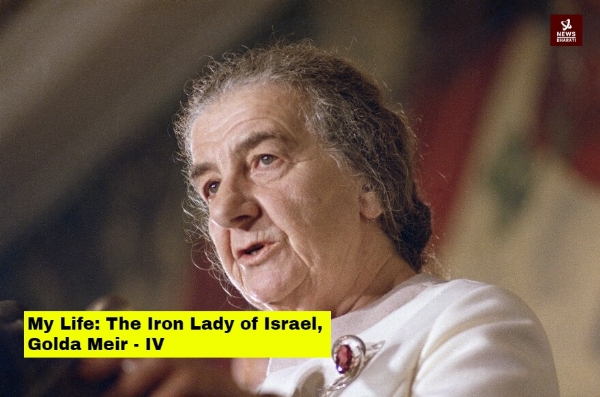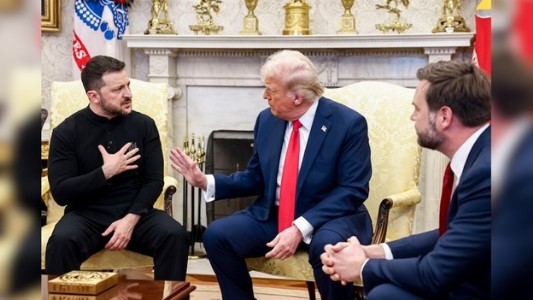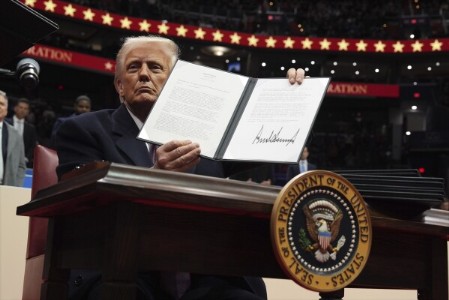My Life: The Iron Lady of Israel, Golda Meir - III
Total Views | 231
At Denver
Many immigrants used to visit Sheyna and Shamai's house, there used to be discussions on many points related to the future of Jewish people and some philosophical concepts too. All drank cup after cup of tea with lemon. Probably these rounds of discussions were enjoyed by Golda, she always volunteered to disinfect the cups. She listened to all the discussion very carefully and sometimes voiced her opinion too. Though she could not understand some philosophical terms but could grasp that if the rights of the workers to decent life and no exploitation were to be realised, then tyrants had to be vanquished. Socialist -Zionist philosophy made sense to her, national home for Jews where they could be free and independent was something which certainly fascinated her.

All spoke Yiddish, Yiddish literature, the right to vote for women, the future of trade unionism all such topics were discussed. The idea of establishing a kibbutz in Palestine attracted her the most. (kibbutz -Hebrew: meaning 'gathering, clustering'; is an intentional community in Israel that was traditionally based on agriculture. The first kibbutz, established in 1910, was Degania. Today, farming has been partly supplanted by other economic branches, including industrial plants and high-tech enterprises. )
Gordon was the one to establish a kibbutz in Palestine, he went there along with his family when he was almost 50, had never been involved with physical work before, tilled the soil with his own hand, and wrote about the ' religion of labor '. He thought that Jews would make a just society through their physical labor, of course, gigantic efforts in that direction were essential.
Golda went to Palestine in 1921, and after a year he died, and she revered him the most.
Golda mentioned the name of a delicate girl Rachel Bluwstein, who reached Palestine around the time Gordon reached. She worked on the soil, did not know a word of Hebrew till she went to Palestine, and later was known to be the first modern Hebrew poet. Golda was influenced by her story too.
They visited free concerts together, he introduced her to this new world. Attended many lectures together on literature, history, and philosophy, and walked parks, in spring and summer.
She admired him to a great extent, and though her sister was fond of him, she was aware that Golda had come to Denver to study and Shayna was Golda's guardian. Ultimately Golda had to leave their home, she was invited by Sheyna's friends, who were not in good health. The set-up was not very good, but Golda was delighted to be free. She found a job to support herself probably with a tailor, but soon she could find a small room on rent for her, which was germ-free at least.
This was a new phase of life, of course, there were moments when she wished to be with her sister again, especially after Sheyna's son ( Judith ) was born. She wrote to her friend Regina about Morris, but she noted that she felt lonely at times without friends and family. ( probably it was the cost of independence)
After a year her father wrote ( swallowing his pride ) to her that if she valued her mother's life, then she should return. She discussed it with Morris and decided to return to Milwaukee. They decided to wait for some time for marriage as they were quite young. This brought a ' blissful state of mind ' for Golda.
Back to Milwaukee
Her parents had changed with the time, she found. The financial picture too was improved, the family had moved to a new and better area, and her new home used to be full of people and activities. She joined High school, and after graduating registered in the normal school, ( 1916 ) which was a teacher's training college. Her parents did not object and allowed her to have her way. Morris and Golda were in touch, she started receiving the letters at her friend's house.
Golda's parents became very active in the Jewish community. Golda learned to cook plain and nourishing Jewish food which she continued cooking throughout her life.
Her mother turned their house into a depot for 'the boys who fought under the Jewish army within the framework of the British army to liberate Palestine from Turks'. She gifted them a small embroidered bag which contained a prayer shawl, phylacteries ( a small leather box containing Hebrew text worn by men at the morning prayer ), and a big one full of cookies prepared by her in the oven. Her father too was involved with the Jewish life in the city. The home turned into an institution for the Jewish community. The people she met and heard speak in public later were major influences on her life and the Zionist movement, she noted.
Bharati Web








